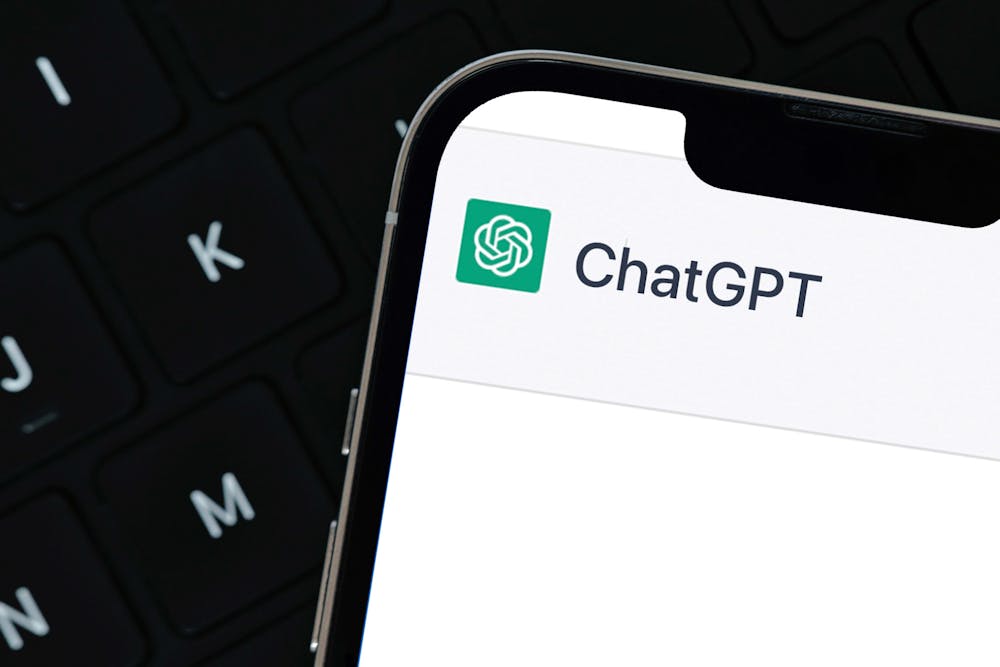Generative artificial intelligence technologies such as ChatGPT have exploded on college campuses. And after a year of grappling with the impact of these technologies on education, the true solution may not be one we expect: using ChatGPT not as a cheat code but as a tool for learning could be the key for AI integration into our academic lives.
As the semester comes to an end, it's important to reflect on the accomplishments and challenges of the past school year. One of this year’s challenges was the integration and development of AI technology into our lives as college students. We all witnessed the rapid rise of various AI technologies, the most popular of which is ChatGPT with over 100 million monthly users by early 2023. However, with AI’s increasing popularity comes concerns from professors and campus leaders.
Before college, I had no idea what ChatGPT was. I had no idea how it could be significant in the academic world. My introduction to AI came after skimming through my syllabi and discovering new sections titled "AI Statement" or "Usage of Artificial Intelligence." At first, I overlooked these sections, but my professors and TAs made sure that I understood the importance of AI in our courses.
During my first week of school, discussions about AI’s impact filled lecture halls. My professors went over ChatGPT’s tools, from answering questions to handling complex calculations and even generating complete essays. These lectures were supposed to be heeded as a warning, but without realizing it, my professors had given an endorsement of ChatGPT to hundreds of students. By telling us all the tools that ChatGPT has, they made more students aware of its benefits.
According to a survey conducted by Intelligent.com, almost one in three college students have used ChatGPT for assignments. UW-Madison and its professors are aware students take advantage of this technology. But what is the best way for professors to engage with it?
Several professors choose to push back against AI use through AI identification tools like TurnItIn. But there are still some concerns regarding these systems, which can sometimes mislabel student work as AI-generated.
Without a concrete way of knowing whether a student's work is AI-generated, many professors are taking a different approach.
Several of my classes have made an effort to incorporate ChatGPT into their curriculums. This kind of technology is not going away, so it may be best to embrace it as an academic tool. Comparing AI-generated text to human-generated text or using AI to encourage classroom discussion are just a few ways professors could utilize this technology. By building this technology directly into assignments, professors can prevent ChatGPT as a means of academic misconduct and instead see it as a learning device.
In this way, professors show students that while ChatGPT and similar AI platforms can help with simple tasks, they cannot replace the human mind. My professors emphasized this concept throughout the year and encouraged my classes to use AI as a supportive tool rather than relying on it for full responses.
As we step away from our first year of classes with AI technology, there are some things we should keep in mind.
First, according to a study conducted by the Pew Research Center, two-thirds of U.S. teens said they have heard of ChatGPT, meaning more students are coming into college with an understanding of ChatGPT and its abilities. Given this, it is the university’s responsibility to introduce AI in a healthy manner so we can all gain a better understanding of how this technology works and how it affects our academic lives. Professors and faculty will play a critical role in introducing students to this technology in the future, so how they frame AI technology will affect how many students choose to use it.
By having educators take the time to explain AI concepts, address common misconceptions and teach responsible AI use, it has the potential to become a great learning tool in the future.
Lillie Sunby is a freshman studying psychology, communications and political science. Do you agree that colleges should learn to embrace AI technologies? Send all comments to opinion@dailycardinal.com.






